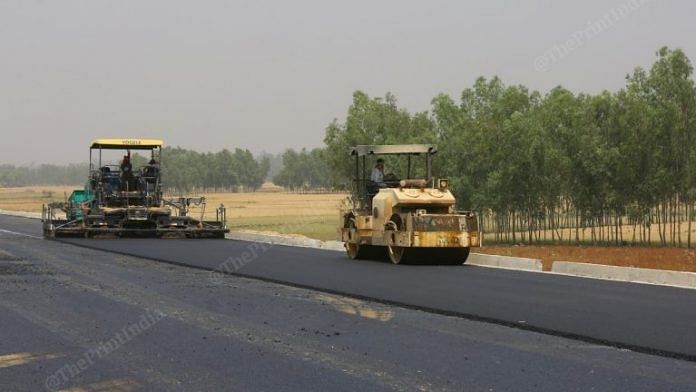Governments have begun to invest in the large infrastructure projects needed to reverse the diseconomies and congestion that characterise many African and Asian cities, recognizing that efficient and productive cities are fundamental to economic growth.
The land is needed to build the infrastructure, but protracted weak city planning means only little land is available that is not encumbered by unplanned human settlement or livelihoods.
In effect, cities must superimpose new infrastructure on top of already settled land. While this creates a set of complex environmental, social, and livelihood situations that need to be safeguarded against, it also provides the opportunity to start the discussions on how to “unscramble the egg” and deepen the formalization process of the city.
International development finance institutions have relocation, environmental, livelihood, and social safeguards in place. The aim is to protect against the abuse of human rights, the loss of livelihoods, and the destruction of the environment, ensuring that no one is worse off because of the proposed new infrastructure.
Prior to construction a detailed environmental and social impact assessment (ESIA) is mandated with mitigation measures designed to ensure that the project is implemented within the framework of the funder’s safeguards.
Also read: Modi govt approves PLI scheme worth Rs 10,683 crore for textiles sector
Many lending governments dislike these additional safeguards as they are more demanding and expensive than the national eminent domain policies that entitle governments to expropriate private property for public use, with compensation payments. Many governments seek development finance that is not encumbered by additional safeguards that go beyond national eminent domain policy and forced relocation.
Today, while forced relocations still happen, informal settlement communities are better organised into settlement, city, and national federations to resist. In part due to social mobilisation and social media campaigns, national governments have been taking safeguarding more seriously in recent years.
While international development finance institutions have the full set of safeguards, the bigger challenge is that few countries have the institutional capacities to implement them where the urban poor need them most.
Most impacted households in the developing world have weak land tenure rights, live in fragile shelters, and seldom have tax records as they work in the informal economy. Having been marginalised by national and local government authorities, informal communities understand that the proposed infrastructure is not for them and that they will simply be forced to relocate to somewhere even more precarious with very little compensation.
Part of the problem is a history of mistrust between households living and working in conditions of informality and national and local government authorities. This mistrust stems from the systemic marginalisation of these communities including constant threats of demolition and arrest.
The other part of the problem is a planning and land administration system that cannot make land available at the speed at which urban growth occurs and that links land to an inclusive master plan for the city where the servitudes of future infrastructure investments are mapped.
Also read: Similar structural aspects among Quad members helped foster cooperation, says Jaishankar
Building partnerships to solve community issues
How can we ensure that no one is made worse off by much-needed infrastructure?
One route to success is through building trust and partnerships between national government, local government, and communities through the establishment of dialogue structures at the settlement, city, and national levels.
In Kampala for example, Cities Alliance and its partners (AVSI, SDI, UNOPS) are supporting the Uganda National Roads Authority to implement safeguards for the construction of the Kampala-Jinja Expressway (KJE). This major infrastructure project will develop limited access tolled artery in the central and eastern region of Uganda, linking the country with its East African neighbours. While the construction of the KJE will bring enormous long-term benefits to the region, there are also risks associated as the road will cross some of the most populated informal settlements in Kampala.
Through “settlement forums”, local communities come together to discuss and agree on the pressing issues that should be pushed to the authorities, the community’s strategies for addressing them, and the partnerships they seek. Working with development partners this process has supported national and local governments to identify viable alternative lands to enable resettlement in a planned way with strengthened tenure and improved longer-term service delivery options.
The forums enable a sustained dialogue between the affected residents and the project stakeholders ensuring that local concerns are raised, and workable solutions negotiated to effectively mitigate against the negative impacts of relocation, the need to preserve livelihoods, and protect natural ecosystems.
Investment in infrastructure that runs through settled communities is inevitable and a good thing. In principle, safeguards can ensure that a wide range of interests can be protected thus ensuring that no one is worse off. What is needed is the dedicated capacity to ensure that safeguards are well designed and respond to the actual challenges faced by communities.
Julian Baskin, Principal Urban Advisor, Cities Alliance/UNOPS
This article was originally published in the World Economic Forum. You can read it here.
Also read: Successful governments are now using digital tools to combat social challenges



